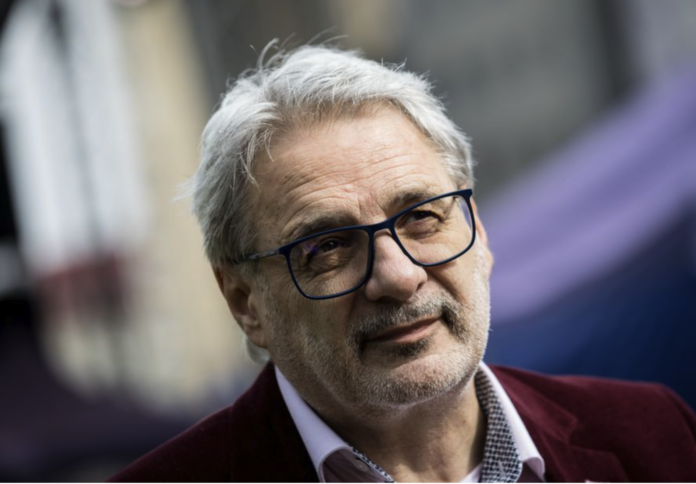On the 35th anniversary of the Velvet Revolution, Slovakia faces significant challenges to its democratic institutions. Under Robert Fico’s leadership, critics warn of increasing authoritarian tendencies and a departure from the liberal values that defined the nation’s transition after 1989. Observers argue this shift threatens the principles established during the revolution and raises concerns about Slovakia’s democratic future.
Marián Leško, a respected commentator on Slovak politics, spoke to Denník N about the 35th anniversary of the Velvet Revolution, a watershed moment that promised a future anchored in democratic ideals. Yet, as Leško observes, Slovakia’s progress has been hindered by systemic issues, including a retreat from liberal democracy towards an authoritarian style reminiscent of Russia or China. The discussion unpacks the rhetoric of Prime Minister Robert Fico, who recently suggested that the post-1989 embrace of Western democracy has led to excesses rather than fulfilment. Fico’s criticism, as interpreted by Leško, reveals his preference for a model where democracy serves the powerful rather than safeguarding citizens’ rights.
Central to the interview is a critique of Fico’s lengthy tenure as prime minister. Leško argues that despite having unprecedented parliamentary control during parts of his 13 years in power, Fico failed to address key societal issues such as economic inequality and public sector inefficiencies. Instead, his governance entrenched corruption and exacerbated disparities in wealth and opportunity. Leško recalls the damning observation of a Czech journalist, who remarked that “nobody with so much power has done so little for their country.” This critique underscores how Fico’s leadership prioritised consolidating power over fostering meaningful reforms.
Leško also addresses a disturbing shift in public attitudes toward state violence. Reflecting on a recent case in Košice, where police brutality resulted in the death of a homeless man, he contrasts the widespread rejection of state violence during the Velvet Revolution with today’s alarming acceptance. Leško warns that societal desensitisation to such abuses risks normalising systemic violence. Even more troubling, he notes, is the lack of accountability within the police force and government—a situation he attributes to systemic rather than individual failings.
The role of non-governmental organisations (NGOs) in fostering democracy is another focal point of the discussion. Leško defends the value of NGOs such as Transparency International and Zastavme korupciu, which work to enhance government accountability. However, he criticises the government’s efforts to delegitimise these organisations by categorising them as “political” rather than “public benefit.” Leško contrasts the government’s acceptance of foreign funds for infrastructure with its hostility towards foreign-supported initiatives aimed at strengthening democracy, calling this stance hypocritical and detrimental to the nation’s democratic health.
Another topic of concern is the increasing radicalisation of Slovakia’s political landscape. Leško highlights a shift in voter preferences from mainstream parties like Smer to extremist groups such as Republika. This trend, he warns, reflects a dangerous disillusionment with moderate politics, as voters seek more radical solutions to perceived societal grievances. Such developments threaten to deepen divisions within Slovak society and erode its democratic foundations further.
Leško does not shy away from addressing Fico’s controversial relationship with Russian media and his broader alignment with Kremlin propaganda. By appearing on Russian state television and dismissing Western narratives as biased, Fico signals a troubling willingness to align Slovakia with authoritarian powers. Leško interprets this as an alarming departure from Slovakia’s commitments as a member of the European Union and NATO, warning that such rhetoric undermines the nation’s credibility on the international stage.
Finally, the interview touches on rare positive developments, highlighting individuals committed to ethical leadership and integrity. Leško praises public figures like Viktor Vincze for their stand against political interference in journalism and Ivan Korčok for his decision to enter politics despite its challenges. These examples, while exceptional, offer hope for Slovakia’s future amidst its democratic struggles.
Leško’s analysis paints a stark picture of a democracy under siege. With public tolerance for authoritarian tendencies growing and institutional accountability weakening, Slovakia faces critical questions about its direction. As the country reflects on 35 years since the Velvet Revolution, Leško’s insights serve as a sobering reminder of the work required to safeguard the democratic ideals it once fought to achieve.
Source: Monika Tódová | Denník N








